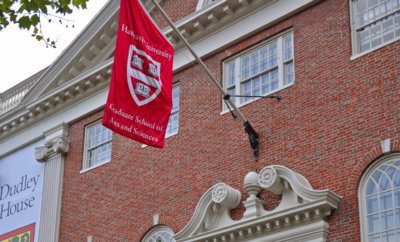Education
National Eligibility Test Mandatory for Indian MBBS Aspirants Applying Abroad

Representational Image
Photo: Bigstock
Indian or OCI students will have to qualify NEET for admission to MBBS course in foreign universities from May 2018 onward.
Indian students who wish to study medicine in foreign countries will have to compulsorily qualify the National Eligibility cum Entrance Test (NEET) to take admission in MBBS courses abroad, according to new amended regulations.
“Indian Citizens or Overseas Citizen of India intending to obtain primary medical qualification from any medical institution outside India, on or after May 2018, shall have to mandatorily qualify the NEET for admission to MBBS course abroad,” the Ministry of Health and Family Welfare said in a statement, approving the proposal of the Medical Council of India (MCI) to amend the Screening Test Regulations, 2002.
NEET, which was introduced in 2016, has to be cleared by students who wish to pursue a MBBS course in any private or government medical college in India. Until now, it was only meant for students who wanted to study MBBS in India.
However, it was brought to the government’s notice that medical institutions or universities in foreign countries admit Indian students without proper assessment or screening of the students’ academic ability to cope with medical education. Consequently, many students fail to qualify for the screening test.
According to the health ministry, the result of NEET will be treated as the eligibility certificate for such students, provided that they fulfil the eligibility criteria for admission to the MBBS course prescribed in the regulations on Graduate Medical Education, 1997.
“Indian students can also pursue medical education abroad and have to qualify a Screening Test called Foreign Medical Graduates Exam (FMGE), for registration to practice in India after obtaining primary medical qualification (MBBS) overseas,” the statement added. The FMGE is the licensure examinations conducted by the MCI.
In 2015-16, the number of students who appeared for the FMGE was close to 6,000 in just one session, and the pass percentage was 10.4 per cent. Around 12,000 Indian students who had a medical degree from China appeared for FMGE from 2012 to 2014. Russia came second, with 5,950 students appearing for FMGE, followed by Ukraine, with 3,520 students, and Nepal, with 3,163 students, according to Factly.
If a student does not clear the FMGE, he or she fails to be registered to practice in India. “In such cases, they start quackery or practice illegally which can be dangerous. So, the move is aimed at ensuring only competent students get to study medicine in foreign universities,” PTI reported, quoting an official.
“As per the data, the percentage of graduates who have studied abroad and have cleared the FMGE has ranged between 13 and 26.9 per cent in the last five years. This is really a matter of concern as they go out, spend lot of money of their parents and are not able to contribute to the healthcare in India once they come back,” the official said, the report added.
Students who now aspire to study medicine in a foreign university will get a No Objection Certificate only when they clear NEET.
Around 7,000 Indian students go abroad to study medicine every year, with some of the popular destinations being China and Russia. China appeals to Indian students because it offers inexpensive medical education, according to a survey conducted by the World Education Services, a New York-based organization evaluating foreign academic credentials.




1 Comment